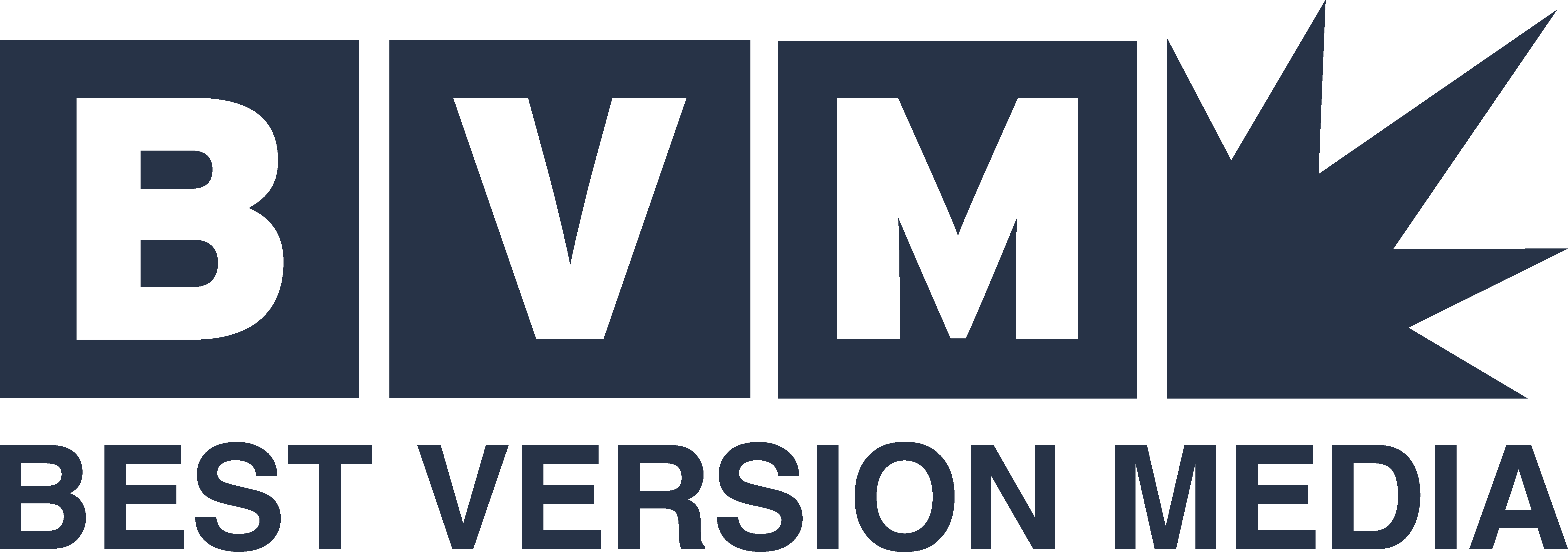
Location-Based Page Titles Explained: A Practical Strategy to Boost Local SEO
Mastering local SEO has become one of the most vital pieces of business success. While many elements are involved in ranking well in search engine page results (SERPs), one of the most effective, yet overlooked strategies is the use of location-based page titles.
These titles are important for search engines to understand your geographic relevance. They also help consumers immediately identify your business as a potential local option. Crafting these titles thoughtfully is essential for maximizing SEO benefits and improving local visibility online.
By understanding how to write effective location-based page titles, businesses put themselves in a better position to attract nearby customers actively searching for their products or services.
With 80% of consumers across the U.S. searching online for local businesses on a weekly basis, according to SOCi’s Consumer Behavior Index, attracting the eyes of consumers near the top of search results is more important than ever.
Here’s a detailed analysis on how businesses can do just that, focusing on the importance of location-based page titles and the best practices for creating them.
What Are Location Pages and Location-Based Page Titles?
Location pages are dedicated pages that provide specific information about what area a business serves, essentially acting as digital storefronts by guiding users to your brand while displaying relevance to search engines. Successful location pages deliver localized information that helps both search engines and users realize the distinction of each location. According to seosandwitch.com, location-specific landing pages can increase local rankings by 21%.
These pages can feature several elements, including targeted local keywords, appealing local imagery, clear calls-to-action (CTAs), Google Maps snippets, customer reviews, accurate business hours and consistent contact information, like name, address and phone number (NAP).
Location-based page titles are assigned to these pages, featuring specific geographic identifiers, such as a city, neighborhood or region, paired alongside relevant keywords. These titles should match user intent while being clear and concise about the location and benefits of your business.
For example, an emergency plumbing company in Austin, Texas might use a title like “Emergency Plumbing Services in Austin, TX” rather than just simply “Emergency Plumbing Services.”
By integrating local information, businesses can signal the precise areas that they serve, making it easier for search engines to map your brand to a particular area while enhancing visibility for local queries. In turn, businesses have a better chance of ranking higher in local search results, potentially leading to more conversions. According to HubSpot, 92% of searchers will pick businesses on the first page of search results.
What Is the Significance of Location-Based Page Titles?
Local search is a powerhouse driver of traffic and leads. According to seo.com, 1.5 billion searches each month include “near me,” further demonstrating that users are often looking for products and services in their immediate area.
When a user searches something such as, “coffee shop in Seattle,” search engines prioritize pages that clearly indicate Seattle in their titles and content. Overall, location-based titles improve local SEO by:
- Enhancing relevance – Search engines use titles as a primary indicator of page content, which should be informative and engaging while catering to local customers’ interests and needs. Including the location tells the algorithm exactly where your business operates.
- Boosting click-through rates (CTRs) – Users scanning search results want quick confirmation that your business is local and relevant, making location-based titles more attractive.
- Supporting local keyword strategy – Combining local terms with keywords helps your business compete effectively in local search results. Keywords should be researched and display local intent. Research should begin by identifying phrases or questions that potential customers are using when searching for products or services in your area. Keyword research can be done using platforms like Google Business Profile Insights or Google Trends. It can also be beneficial to research your competitors’ keyword strategies to find out where your business might be able to fill the gaps. Search volume and competition level of keywords should be analyzed, with prioritized keywords eventually placed alongside geographic terms. A primary keyword describing your service is imperative, while secondary modifiers like neighborhood names, landmarks or nearby areas can further enhance your title.
- Improving user experience (UX) – Clear titles help users navigate to the proper page faster, reducing bounce rates and improving engagement signals.
How to Write Location-Based Page Titles That Improve Local Rankings
Crafting an effective location-based page title requires accuracy and awareness regarding what your audience is searching for, and attention to several other key factors. Here’s a closer look at what to focus on:
1. Include the primary keyword and location early
Search engines tend to give more weight to the first few words in your title tag. To maximize SEO impact, start with your main service or product keyword, followed by the location. The keyword(s) should directly relate to your product or service offering to ensure you attract the proper audience, and should also be specific.
- More effective: “Austin Plumbing Services | Emergency & Residential”
- Less effective: “Emergency & Residential Plumbing Services in Austin”
Early placement of the location also captures users’ attention immediately. Secondary business locations can be placed within the actual location page, perhaps in the intro paragraph or under a heading. This can potentially lead your business to show up in more than one location while giving search engines further context.
2. Use specific location names
The more precise your location, the better, as users may search for a wide range of locations like city names, zip codes or neighborhoods. Instead of just using a broad term like “New York,” specify boroughs or neighborhoods when relevant, like “Brooklyn Roofing Contractors.” This strategy, particularly beneficial for businesses serving large or high-density areas, helps capture hyperlocal search traffic and reduces competition with businesses targeting the larger city.
3. Avoid keyword stuffing
While it’s tempting to cram multiple keywords and locations into one title, don’t overdo it. Overstuffed titles can appear spammy to both search engines and users. Titles should be concise, readable and natural. They should also ideally be kept between 50 to 60 characters to ensure full visibility in search results.
4. Incorporate brand names when relevant
Adding your brand name at the end of the title can help boost brand recognition, especially for already established businesses. For example: Denver Pet Grooming Services | Paws & Claws Groomers.
Lesser-known brands should prioritize keyword and location over the brand to capture search traffic first, as users are often looking for a solution rather than a specific company. In addition, business names should typically be placed at the end of a title, as search engines often weigh the first few words of a title more heavily.
5. Tailor titles for different pages
Your homepage, service pages and blog posts should each have unique, location-based titles that are relevant to their specific content. For example, a page about “Roof Installation in San Diego” should have a title distinct from your “Roof Repair in San Diego” page.
6. Match user search intent
Understand what your potential customers are searching for. Are they looking for “24/7 locksmith in Miami,” “affordable locksmith in Miami” or simply “Miami locksmith?” Reflect this intent in your titles for higher relevance. Your title may often work best when going beyond just what you do and where you are located. Adding specific relevant search terms like “24/7,” “open late” or “emergency” makes your title both relevant and unique.
10 Examples of Strong Location-Based Page Titles
Descriptive page titles that focus on primary keywords, services, benefits and locations can be used across any industry. Here’s a look at some quality examples that could be used for local businesses across the United States.
- Emergency Plumber in Tuscaloosa, AL | Fast 24-Hour Service Available
- Top-Rated Pest Control in Phoenix | Safe & Effective Solutions
- Best Italian Restaurant in Bloomington, IL | Award-Winning Cuisine
- Leading Real Estate Agency in Erie, PA | Trusted Local Expertise
- HVAC Repair & Installation in Miami | Licensed & Insured Technicians
- Affordable Roofing Services in San Diego | Residential & Commercial
- Top Family Law Firm in Atlanta | Experts with 20+ Years Experience
- Craft Coffee in Ann Arbor, MI | Organic Coffee & Fresh Brews
- Trusted Dentist in Milwaukee | Personalized Care & Modern Technology
- Experienced Hairstylists in Virginia Beach, VA | Cuts, Color & More
Additional SEO Strategies to Complement Location-Based Page Titles
Location-based page titles are perhaps more important than ever with the growth of mobile search, voice assistants and “near me” searches. In fact, 88% of consumers who do a local search on their smartphone visit or call a store within a day, according to HubSpot. Meanwhile, Think With Google notes that about 28% of local mobile searches result in a purchase.
That makes location-based titles a vital and cost-effective tool to help your business appear in front of the right audience at the right time. However, even though location-based page titles are a key component of local SEO, they should be combined with several other SEO practices to be most effective, including:
- Using location keywords in meta descriptions and headers – This reinforces geographic relevance across the page. Meta descriptions, which are the brief snippets that appear below a page title in search results, should be concise and compelling as a first impression for search engines. Including a city or area within them makes it abundantly clear who your business is targeting while increasing the chances of showing up in local search results. If space allows, as these descriptions should typically stay between 100-150 words, it can also be beneficial to add contact information such as a phone number or address that could potentially lead users to act quickly.
- Creating dedicated local landing pages – As noted earlier, local landing pages allow businesses to target multiple neighborhoods or cities with separate pages that are tailored to each location. Each landing page should aim to serve a specific audience in a particular location, with custom title tags confirming this information to compete effectively in SERPs. Using the same title or making only minor changes across all local pages can confuse search engines and potential buyers alike.
- Optimizing content and FAQs – While content alone doesn’t directly impact SEO, adding location keywords naturally within various pages like your homepage, about page, service pages or blog posts can further showcase the areas you serve and the benefits your business offers. Local guides or relevant local news stories that demonstrate expertise, authority and trust can also be beneficial. In addition, an FAQ section can also potentially boost SEO while enhancing UX as well, answering common queries that customers may have.
- Including image alt text – Alt text is designed to clearly describe an image on the back end of your website. Adding location keywords into alt text can be another strategy to enhance your local visibility by helping search engines recognize what your images show.
- Implementing schema markup – Schema markup provides search engines structured data about details of your business. Adding LocalBusiness schema can be particularly crucial for local businesses aiming to improve their search result ranking and rich result opportunities, as it will help search engines understand your business in more detail.
- Crafting headings (H1, H2, H3, etc.) – Similar to title tags, these HTML elements help organize content on your website. Your main H1 heading should feature a primary keyword, while subheadings (H2, H3, etc.) are often utilized to break up content and can include other relevant keywords.
- Including keywords in URL slug – It can be beneficial to include your primary keyword within the last portion of the URL of a specific landing page.
- Building local backlinks – Partnerships with local organizations and citations increase authority in the area.
- Leveraging your Google Business Profile – Consistent NAP data and local listings boost credibility.
- Ensuring mobile optimization – Making sure your website is mobile optimized with a fast loading speed is also imperative, as Google prioritizes websites in search results based on mobile.
Overall, search engines read various signals on your website, ranging from your copy, titles, meta descriptions and location pages. Without location cues, it is difficult for search engines to recommend your business as the perfect fit for local customers.
Additional Benefits of Local SEO
The above practices can all help improve local SEO, aiming to increase a company’s visibility in local search results. Some other benefits that stem from focusing on location-based SEO include:
- Targeted traffic – Location-based SEO allows you to target users who are actively looking for products or services in your particular area. This increases the likelihood of traffic and conversions within your target audience while avoiding the potential waste of marketing toward a broader group.
- Enhanced trust and credibility – Appearing high up in search results, such as in Google’s Local Pack, can make your business appear more trustworthy in the eyes of consumers, perhaps sparking increased engagement.
- Quality UX – UX is a big component in driving conversions and an important aspect of local SEO beyond just location-based page titles. Websites should be fully optimized, including for mobile users, and all online listings should be accurate and consistent. This is beneficial for potential consumers, and for search engines when ranking your site.
- Cost efficiency – Location-based SEO is a cost-effective method compared to many other advertising strategies, and can help your business become top of mind for consumers without the cost of ad spend.
How Best Version Media Can Help Your Business Stand Out Locally
Best Version Media can help boost your local SEO by assisting in multiple parts of your marketing strategy. BVM provides support with online presence management, including overseeing online listings and reviews.
BVM’s management of geotargeted social media and display ads will also help put your business in front of local consumers, maximizing your marketing impact all from one easy-to-use dashboard.
Connect with BVM today to enhance your local marketing strategy.
Written by Cody Kluge
BVM Digital Content Specialist





